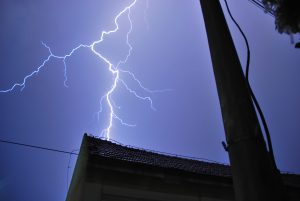Table of Contents
ToggleFire in a High-Rise?
High rises are a primary residence for many people in Fort Lauderdale and the surrounding areas. According to a recent article in the South Florida Sun-Sentinel, a fire ripped through an apartment in the 14th floor of a Fort Lauderdale high-rise. About 100 residents evacuated, but many others didn’t. Both groups were unharmed.
Every High Rise Should Have a Fire Safety Plan
According to the same article, in South Florida, where most buildings include fire-resistant features, some experts advise folks to take the stairs to safety. Others say to stay in your apartment because you’ll most likely survive, given the fire protection in today’s apartment units. In a recent fire-related death in a New York City apartment building in January, a man was overcome by smoke in a stairwell while trying to escape. If he stayed in his apartment, he would have survived.
The incident prompted New York City Councilman Corey Johnson to propose that public-address systems be installed in all the city’s residential high-rises. The systems would inform residents how to react during a fire. These types of fatal fires in high-rises have prompted residents and firefighters to rethink fire safety. Should you stay or should you go? The answer may surprise you. Don’t wait until a fire breaks out to discover what to do. It’s hard to think clearly in the heat of the moment. Instead, learn all you can about your high-rise building and what fire protection plans and safety measures have been put in place. Learning what to do beforehand may just save your life.
Should I Stay or Go?
Become your own fire safety advocate and request a meeting with your manager or board to discuss fire safety. Ask these questions: • Do you have an intercom system to communicate with others during emergencies? If not, does the manager have plans to install one? • Does your building have the right equipment and is kept up to date? • What is your building’s evacuation plan? Are the plans posted in high traffic areas, such as lobbies? Request to practice the escape plan together. • Are emergency numbers posted near all telephones? • Are fire exits or doorways, halls or stairways locked? They shouldn’t be. Not only do they slow the spread of fire and smoke, but they provide a way out. • When was equipment last checked? • Are smoke alarms on every level of the building? Are they tested monthly? Are batteries changed at least once a year?
Stay Calm & Evaluate
Whether you should stay in your apartment or head down the stairs depends on several factors,including your age and how physically fit you are. Feel the door with the back of your hand. If the door is warm, do not try to open the door. Stuff the cracks around the door with towels, rags, bedding or tape and cover vents to keep smoke out. Call the fire department and let them know you are in your apartment and your exact location. Signal for help at a window by waving a white sheet. If the door isn’t warm, evaluate the situation. Open the door slowly and remain low to the ground. If there is no smoke in the hallway or stairwells, follow your building’s evacuation plan. If you encounter smoke or flames on your way out, immediately return to your apartment or office. Preparation is your best precaution. The U.S. Fire Administration, offers a free, printable factsheet, called Danger Above: A Factsheet on High-Rise Safety. Print it out and keep it in a safe place so you know exactly what to do in case of a fire.




















